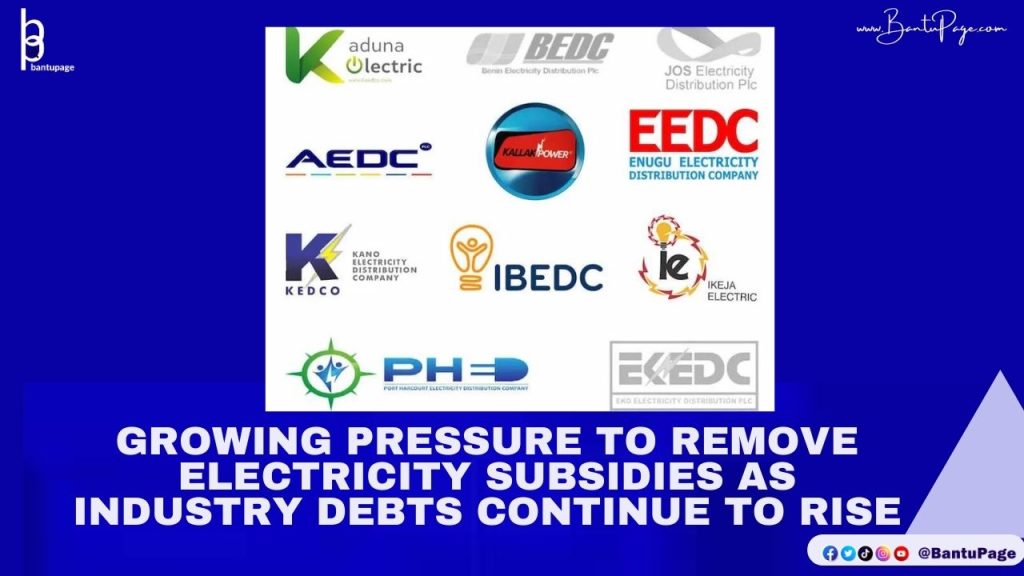
Growing pressure to remove electricity subsidies as industry debts continue to rise
Nigerians have expressed fears that more hikes in energy bills might exacerbate their economic predicament, despite the government and operators continually advocating for cost-reflective tariffs.
Similar to the situation with fuel subsidies, both the government and key stakeholders in the power industry have reached a consensus on the necessity of enabling customers to directly pay for the amount of electricity they use.
They perceive energy as a commodity that needs complete payment from customers who are willing to buy it, rather than considering it as a service.
Government officials have been advocating for the discontinuation of the electricity subsidy programme due to its unsustainable nature. However, investors in the power supply business are demanding a completely deregulated power sector, citing a lack of financial resources as detrimental to the company’s survival.
Multiple factors contribute to the rise in power tariffs.
Factors such as heightened demand, fuel price fluctuations, infrastructure expenditures, and regulatory laws influence escalating energy costs.
Rising Demand: As technological advancements occur, there is an increase in the demand for power, resulting in higher electric rates.
Energy prices: Variations in the cost of natural gas, coal, and oil can result in increases in power prices.
Investments in infrastructure: Improving and sustaining the electrical system may lead to a rise in prices.
Reports indicate that players in the power industry have been pressuring President Bola Tinubu to eliminate the subsidy on energy.
Nevertheless, there were rumours indicating that the President had chosen not to comply with the request to terminate the power subsidy programme due to its potential adverse impact on Nigerians.The president, concerned about exacerbating the pain of the general population, is rejecting the repeated requests from players in the electrical industry to eliminate subsidies. According to reports, the stakeholders have effectively convinced the Minister of Power, Adebayo Adelabu, that implementing cost-reflective rates is the sole method to construct a functional power sector.
This scenario can only occur if the government eliminates the subsidy and permits customers to directly cover the costs of their use.
In February, the Senate opposed the Ministry of Power’s proposal to eliminate power subsidies due to the prevailing difficulties in the country.
They urged the administration to abandon the concept of raising the electricity rate.The higher legislative body has also instructed the power committee to scrutinise the N2tn needed for electricity subsidy payment in order to prevent a recurrence of the fuel subsidy situation, address outstanding debts in the sector, and assess the current level of metering in the country.
Nigerians hold the belief that electricity subsidies should not be removed until all 13 million users are metered, in order to prevent them from paying excessive prices for inadequate power.
By Nnaemeka Odenigbo






